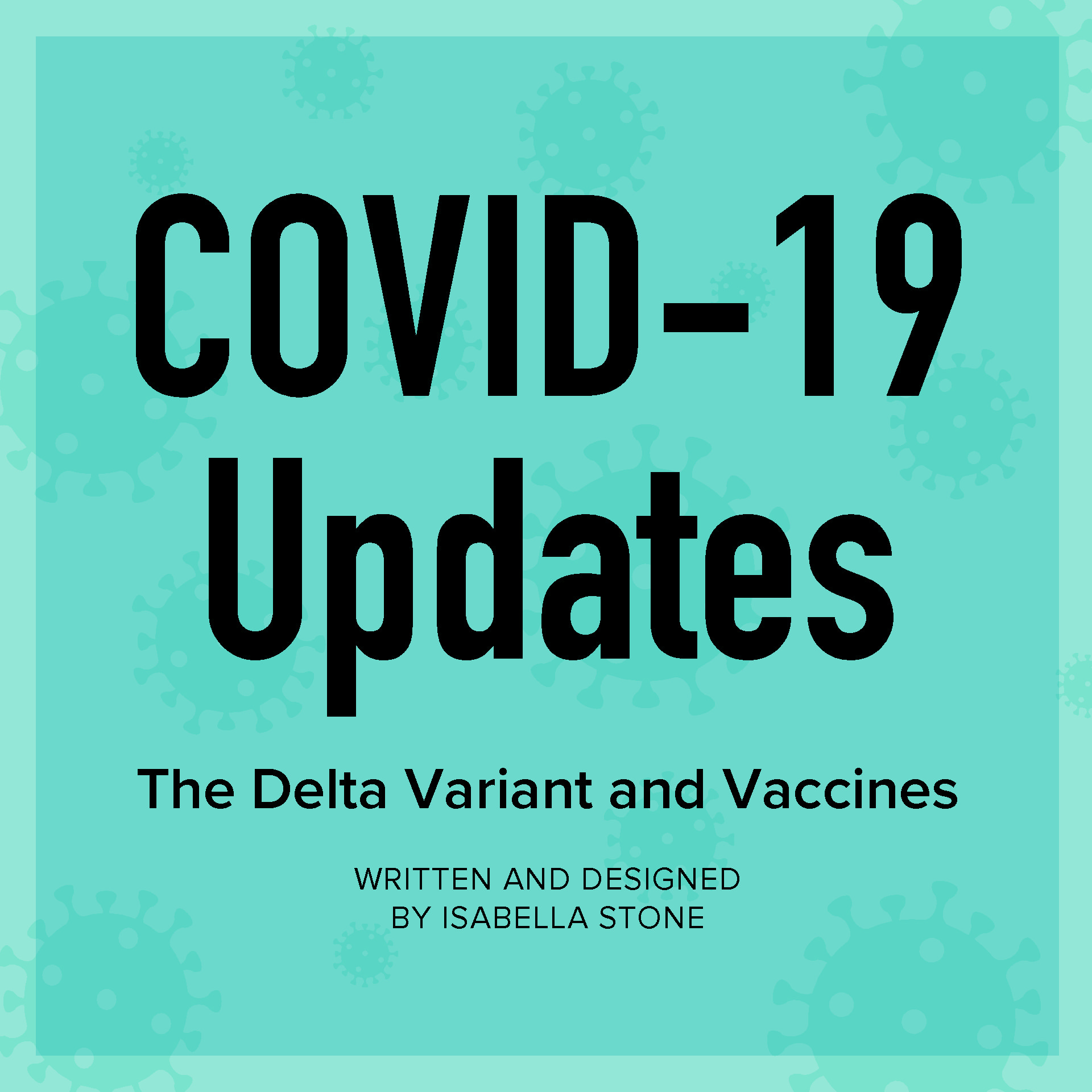
The Delta variant has become the dominant strain in the U.S. Over the past few months, Delta variant cases have grown. Originally found in India in December 2020, it spread like wildfire all the way to Great Britain, and quickly found its way to the U.S. Now they account for over 68% of the cases in the New England area. And while Delta continues to spread across the country, it seems to be predominantly in the Midwest area. New England may have better control over this variant and the virus overall, but it is going to take more of the nation to get vaccinated in order to put a stop to Delta and prevent another strain from forming.
Within the United States there have been over 44 million COVID-19 cases thus far, with over 80,000 of those cases coming from the Boston-metro area. Vaccination rates are reaching 65% in Boston, and at Northeastern over 99% of the campus population is vaccinated. The “Protect the Pack” initiative has been keeping students and staff safe during the pandemic, yet the Delta variant has become a growing concern as it continues to infect new people.
The Delta variant is over two-times as infectious as the other variants. While the original COVID strain spread to two other people for each contagious individual on average, Delta is speculated to spread to three or four others. Essentially, Delta is more contagious because it has the potential to spread and infect more people for each individual case.
Delta has now become the predominant variant in the U.S., and makes up for over half of the present cases in New England. In other areas of the U.S. where vaccination rates are lower, Delta cases make up around 70-80% of present cases. This is very concerning news for the nation and especially for the unvaccinated population, as Delta is capable of making an individual more ill than other variants.
Prevention is heavily emphasized by the CDC as the recommended course of action. Vaccines are the best way to prevent getting sick with COVID. According to the CDC, vaccines are still highly effective against the new Delta strain, although originally manufactured for the initial strains. Even in the instance that a breakthrough infection occurs in vaccinated people, the vaccine can help prevent serious illness and hospitalization. The effectiveness level does vary among the vaccine brands as follows: Moderna is 93% effective, Pfizer is 88% effective, and Johnson & Johnson is 71% effective.
Recent CDC approvals and an overruling of the FDA’s guidelines has allowed for the administration of Pfizer and Moderna vaccine boosters. Six months after receiving the first two vaccines, individuals are eligible for a booster if aligned with these specific criteria: are 65 or older, have underlying medical conditions or are at an increased risk for COVID due to their occupational or institutional setting.
Unfortunately, those who received the Johnson & Johnson vaccine will have to wait for further testing to be conducted, because it is unknown whether it is safe to get a booster shot with the Johnson & Johnson vaccine or to mix-and-match vaccine brands. These new guidelines still allow a wide range of immunocompromised people to have an added line of defense against the virus.
The Delta variant is a more aggressive form of COVID, targeting the younger generations rather than the elderly community that was largely affected during the beginning of the pandemic. College students especially should take Delta seriously due to its intensity.
The virus has adapted — just as humans have adapted to COVID-19 — bringing many new concerns. But the Northeastern community has remained strong and committed to combatting the pandemic. Students are able to enjoy in-person gatherings, classes, and events nearly in the same way they could before the pandemic. And while all of us are tired of wearing masks and taking weekly COVID tests, it is necessary to make it out of this pandemic together.
Delta should not be taken lightly. It will take much more effort to prevent the spread of the strain, and the whole nation needs to establish similar values in order to end the pandemic. With COVID under control on campus, the future is looking bright for Northeastern, which should give students hope that the world will soon be able to recover from the virus just as Northeastern has.